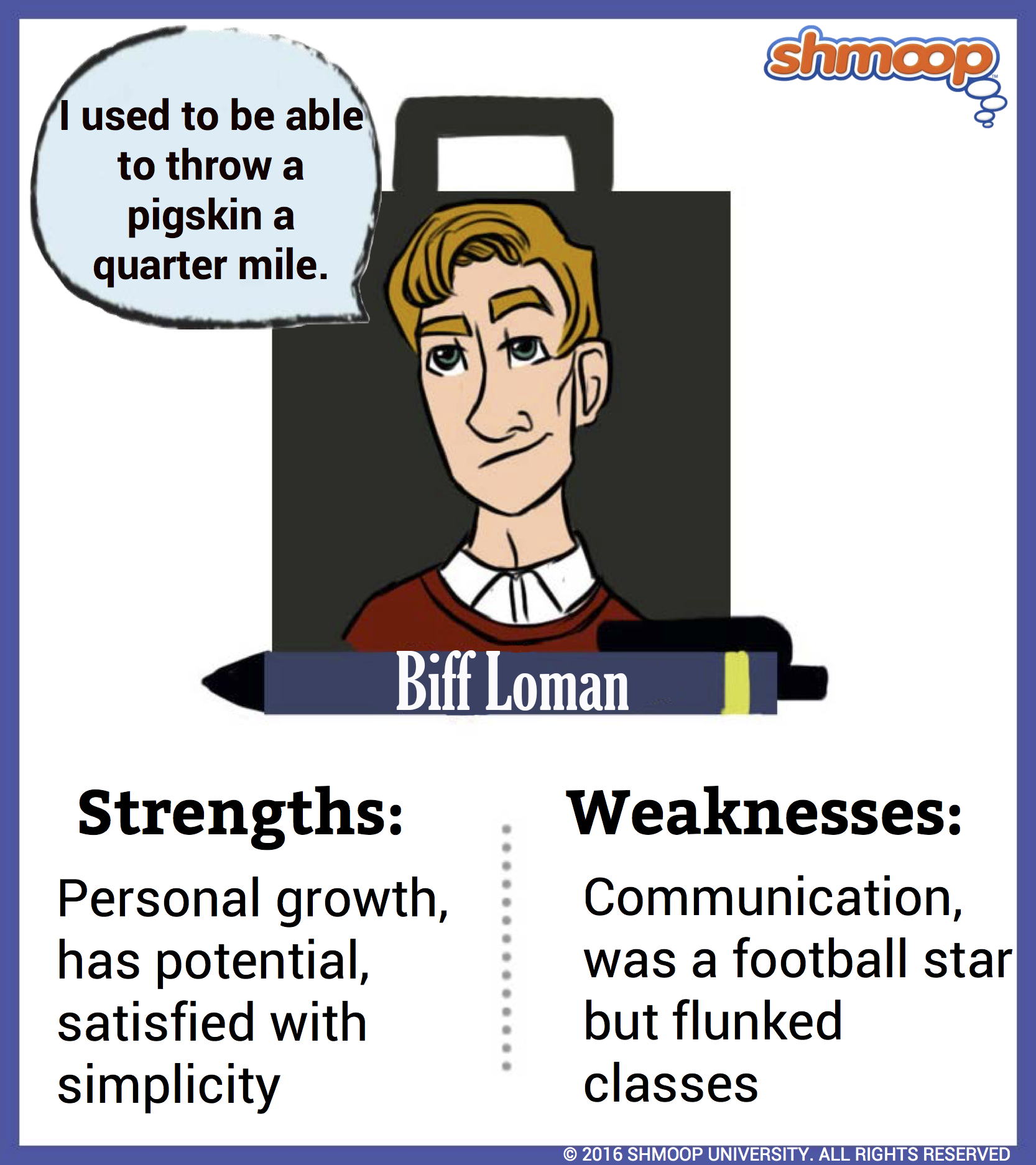Character Analysis

(Click the character infographic to download.)
Don't let Biff's tough-guy name deceive you. He's not just the big, dumb lump that his name might make you imagine. In fact, he's the only character in the book who shows any real personal growth. Sure, Biff is also flawed, just like everyone else. He can't hold down a job, he steals from all of his employers, and he even went to jail. Despite these shortcomings, however, we can't help but like Biff. Why? Because he shows real initiative on the personal development front.
The deal with Biff is that he's Willy's oldest son and the one whom Willy seems to be really crazy about. Biff was a hotshot in high school as the star football player. However, he never put much energy into his schoolwork and failed math as a senior. A lot of this was due to the fact that Willy let him get away with anything and never encouraged him to do well in school. Without the math credit, Biff couldn't graduate and therefore couldn't take his football scholarship to college. Wow, great parenting, Willy.
Things might have worked out for Biff even though he flunked math. He could've taken a summer course and made everything all right. However, right about that time Biff caught his dad cheating on his mom, and it made him go kind of crazy. Once again, Willy had a bad effect on his son's life. Biff bailed on summer school and the math credit. From here, he spiraled downward. He started working on ranches in the West, but couldn't hold a job because he kept stealing from his bosses. When we meet him in the play, he's 34 years old and has finally realized just how bad Willy messed him up.
While Biff is in some ways desperate to impress and please his dad, he also realizes that Willy has flawed, materialistic dreams that Biff is neither able nor desires to achieve. Unlike his father and brother, Biff is self-aware and values the truth. In one shouting match with Willy, he says that he can't hold a job because his dad made him so arrogant as a boy that he can't handle taking orders from a boss. Finally, a moment of truth. Yet, despite his insight and honesty, Biff is unable to communicate openly with his father. Willy is simply unable to accept the truth.
Biff reminds us that the American Dream is not every man's dream. Rather than seeking money and success, Biff wants a more basic life. He wants to be seen and loved for who he is. He wants his dad to stop being such a deluded twerp. Sadly, Miller seems to say, Americans (Biff, in this case) are made the victims of the country's success. Just as Willy is unable to understand or even love his son, America as a whole is unable to understand those who value simple pleasures over the rat race. At least, that's what Death of a Salesman seems to argue.
Biff's Timeline